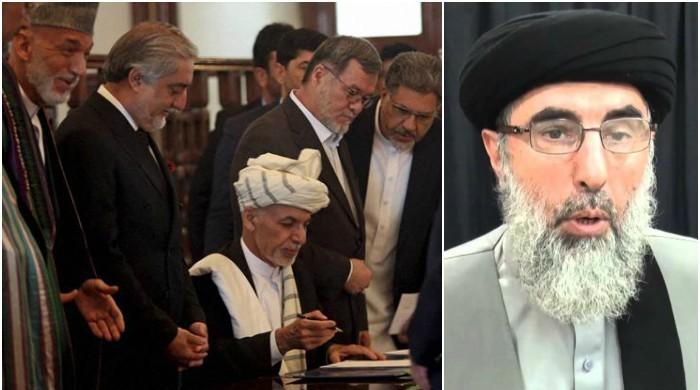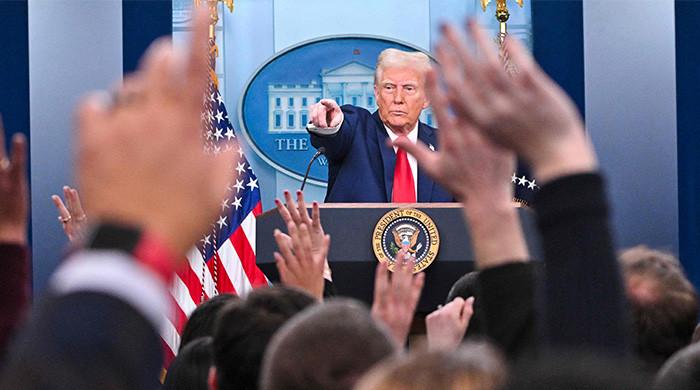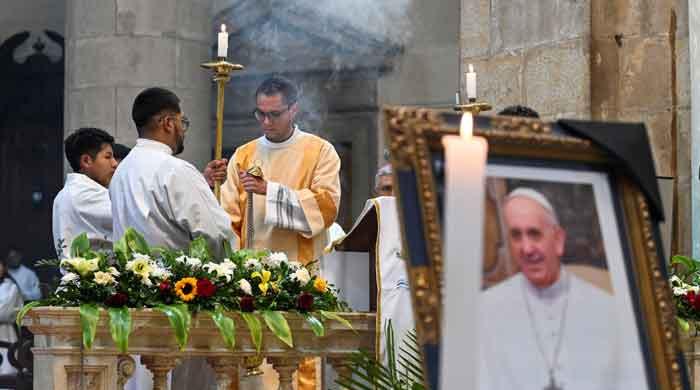Can Hekmatyar deal help bring peace to Afghanistan?
International support shown by developments today is likely to increase the worth of President Ashraf Ghani and his coalition government
February 05, 2017

Although the name of Gulbuddin Hekmatyar, emir of the Hizb-e-Islami group, has been dropped from the list of blacklisted individuals by the United Nations' Security Council, uncertainty still prevails and chances of peace in Afghanistan are bleak because of several reasons, including divisions at the local, national, and international level which are yet to be overcome.
The kind of international support shown by the developments today is likely to increase the worth of President Ashraf Ghani and his coalition government, which was not taken seriously by the local rival groups and the international community.
It was a general perception that the Ghani government was not capable or independent enough to decide about the peace and stability related problems because of its dependence on foreign support for survival. The government had to consider the interests of the allies, both local and international, before proceeding in any direction.
An ethnic Pashtun, Ghani has been jointly running the government with the Persian runner-up in the 2014 presidential election, Chief Executive Abdullah Abdullah. Ghani had agreed to a national unity deal and now the two are ruling the country as coalition partners. Those familiar with governance issues in Kabul, were well aware that this Pashto-Persian coalition government was also one of the biggest hurdles in the settlement of disputes with the Pashtun-dominated groups of the Taliban and Hizb-e-Islami (Hekmatyar).
"The reconciliation process will take time to complete in Afghanistan," said Najam Burhani, a renowned Afghan journalist who has a thorough understanding of affairs in Kabul.
"There are three major reasons which may further deteriorate the situation. First of all, the Afghan government needs to improve its authority and confidence level to satisfy opposing groups. The Afghan government's dependency on foreign and local allies has reduced its value for the Taliban and Hizb-e-Islami," he explained.
The war between Pakistan and India in Afghanistan also needs to be stopped without further destruction, he said.
"But only a regional ceasefire is not enough as world powers, particularly the US and Russia's interests, are also restricting Afghanistan from reaching a better conclusion," he said.
Also read: UN lifts sanctions on Afghan warlord Gulbuddin Hekmatyar
Burhani was not too excited about the new development regarding Gulbadin Hekmatyar, saying members of the group were already present in the government and even part of the peace process in Afghanistan.
A recent report released two days ago says the growing presence of Daesh and Taliban in almost half of the country has shocked those eying a better tomorrow. The report clearly indicates that currently 50 districts, or almost half of the country, are under the influence of the Taliban or Daesh. It also mentions that the Taliban have imposed Shariah or an Islamic way of life in these areas.
"In this whole scenario, Pakistan has the responsibility to assert for peace and play a positive role in Afghanistan to trim-down a serious trust deficit with its immediate neighbor," Shamim Shahid, a Peshawar-based senior journalist and expert on Afghan affairs, said while talking to Geo News.
It is the right time, he maintained, for us to go away from the wars in Afghanistan and win the hearts and minds of Afghans.
"This will increase the Afghans' dependency on Pakistan and we can take long term benefit from the situation. This is the only solution for Pakistan to get rid of the implications of terrorism in Afghanistan," he said.
Speaking to Geo News through telephone from Kabul, Sharafat – Hekmatyar's trusted man in Pakistan, was optimistic about the change in the situation and said that, after the removal of Hekmatyar's name from the black-list, they now expect the release of almost 80 arrested members of the group.
"Iran and India had been pressing Russia to push against removal of Hekmatyar's name from the list. Indians had assumed that bringing Hekmatyar back to Kabul would serve the Pakistani interest. We made it possible through negotiations with former superpower Russia while contacts with the French government were also made," he said.
Afghan Taliban spokesman, Zabeehullah Mujahid, however, declined to accept that they were part of talks with the Ghani-led Afghan government.
"We can only negotiate the aggressors' withdrawal from Afghanistan and our political office is available for this purpose," said the Taliban spokesman replying to a written question about their engagement in peace talks with the Afghan government.
"It will take time to bring peace back to Afghanistan. The superpowers, neighbours, and local political and militant groups are fighting to benefit from the situation," said senior journalist Saleem Safi responding to a question regarding the possible solution of the Afghan crisis.
"Internal Afghan political groups, Iran, India and the world powers are opposing Hekmatyar's return," he said.











